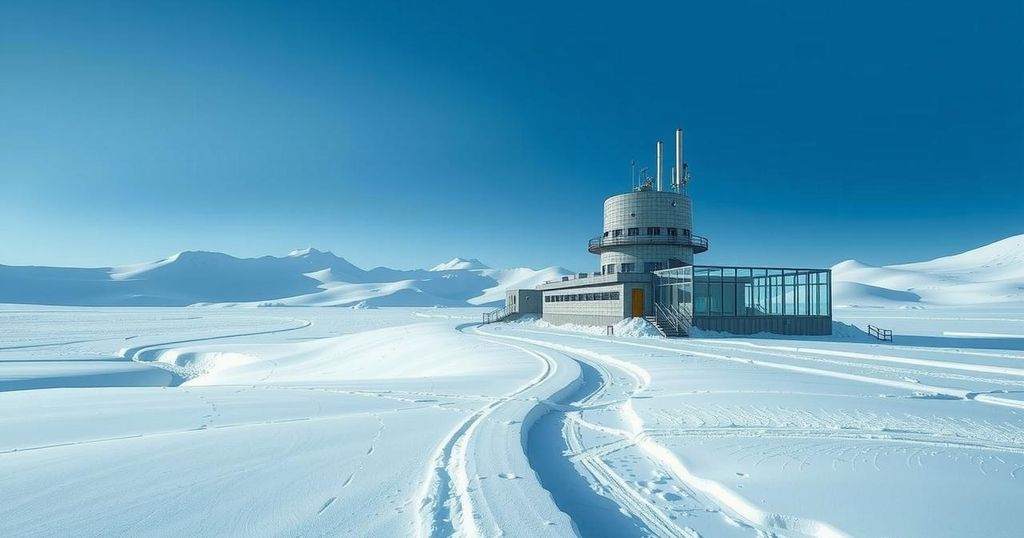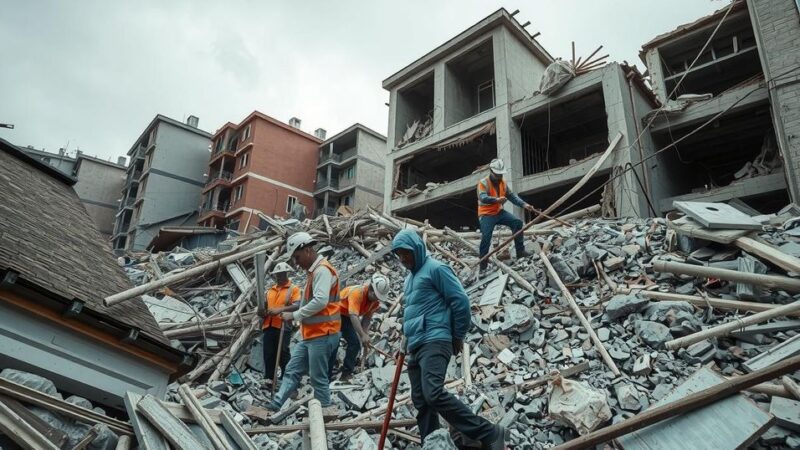A serious incident involving an alleged assault has occurred at the Antarctic Sanae IV research base, prompting significant concern among team members. The South African government is addressing the situation with urgency, as isolated conditions can exacerbate interpersonal conflicts. Experts highlight the psychological challenges faced by researchers in confined environments, further complicating the crisis.
A recent incident at the Antarctic Sanae IV research station has raised concerns after a member of the scientific team was accused of assault. This South African-run base, which is located approximately 170 kilometers from the ice shelf, houses around ten researchers. A spokesperson from the South African government confirmed to the BBC that there was indeed an assault occurring at the station, which followed previous allegations of inappropriate conduct within the camp.
The South African environment ministry has stated that it is addressing the situation with the utmost urgency. According to reports from the Sunday Times, the affected team members have expressed a desire to be evacuated from the base. In response to the incident, the ministry noted that all team members had undergone comprehensive evaluations, including background checks and psychological assessments, securing clearance to work in such challenging environments.
With the Sanae IV research station situated over 4,000 kilometers from South Africa, harsh weather conditions often result in isolation for extended periods. The current research team is scheduled to remain at the station until December. Typical teams include various professionals including a doctor and engineers, who are selected with considerations for psychological wellbeing prior to deployment.
However, troubling reports from the Sunday Times describe a team member’s email that warned of “deeply disturbing behaviour” and hinted at an “environment of fear” among the researchers. A government representative indicated that the alleged assault stemmed from a disagreement about a schedule change for a weather-dependent task. While incidents in Antarctica are rare, they are not without precedent—such as a reported stabbing in 2018 at the Russian-operated Bellingshausen research station.
Experts suggest that prolonged isolation can significantly impact human behavior. Professor Craig Jackson from Birmingham City University stated that small issues related to hierarchy or workload can escalate into larger conflicts when individuals are under enforced isolation. Furthermore, scientist Gabrielle Walker emphasized that continuous close interactions could become frustrating, as the intricacies of colleagues’ habits become overwhelmingly noticeable in such isolated settings.
South African authorities reportedly have access to ice-capable vessels and aircraft for potential rescue operations. However, any such endeavor would face severe challenges due to extreme weather conditions, including frigid temperatures and strong winds.
The incident at the Antarctic Sanae IV research station emphasizes the psychological strains faced by isolated research teams. With a confirmed assault and reports of a heightened atmosphere of fear, South African authorities are taking urgent steps to address the situation. This occurrence serves as a reminder of the importance of mental health considerations in remote scientific expeditions, particularly when team dynamics can be severely tested under isolation.
Original Source: www.bbc.com






